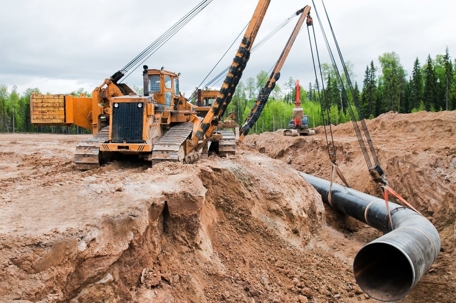More than 250 people including lobbyists, business leaders, politicians, farmers, environmentalists, union workers and landowners traveled to make their case for or against the Keystone XL Pipeline in front of the Nebraska Public Service Commission on Wednesday, May 3.
The five-member Commission limited each person to five minutes of speaking time to give as many people as possible a chance to make their case. Over the 10 hour session, 135 people were given the chance to speak.
The testimony was given in an orderly fashion, though emotions bubbled to the surface on multiple occasions as landowners fought back tears while describing the generations of family who tended to the land now at risk of being seized in order to build the $8 billion pipeline that is intended to connect Canadian oil to oil refineries in the Gulf Coast.
Farmers are far from the only people who will be affected if the pipeline is approved – a number of Native American cultural and heritage sites, like the Ponca Trail of Tears, will be destroyed according to Ponca Tribe Council member Larry Wright Jr. and the chairman of the Winnebago Tribe Frank White.
While pipeline safety was among the topics speakers touched on, the Commission cannot consider it in their decision due to state statute limits that only allow them to consider specific issues like the effect on plants and wildlife, the distance to groundwater, soil permeability, environmental impact and social effect. Since Nebraska is the only state that needs to approve the route, tensions flared up from time to time. However, attorney Brian Jorde, who is representing a number of landowners who stand opposed to the pipeline’s construction, said that:
“there isn’t one argument thus far of why it would be in the public interest of Nebraska… We’ve got people coming in from out of state to support jobs, and all of us can get behind jobs, but when you weigh that against the risks and the rewards, there’s no reason this pipeline should be built.”
While the day saw conflicting arguments from both sides of the issue, Jorde downplayed the contention between those for the construction and those against.
"The main question is not farmers versus union members. We also support union members and jobs. The threshold question is: Is this project in the public interest of Nebraska? And it’s not.”
Related Posts:

